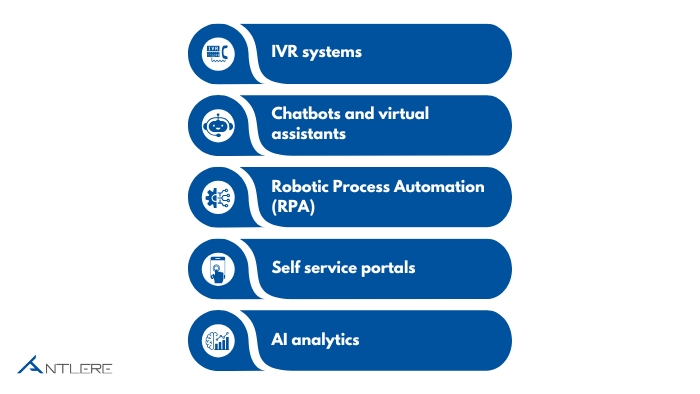Contact Center Automation: The Future of Smarter Customer Service
In the contemporary business world, the world is changing at a faster pace where customer expectations are on the high side. Consumers desire rapid responses, personalized experience and liberty to associate with brands at any time and in any manner that they want. It is almost impossible to meet these expectations manually, that is why a number of organizations are resorting to the contact center automation.
Automation enables repetitive workflows to be simplified by employing artificial intelligence, machine learning, and workflow software, provides agents with time to do meaningful work and provides quicker and more consistent support to customers across channels. However, what is it and why is it important to the future of customer satisfaction?
Let’s explore.
What is contact center automation?
Contact center automation refers to the application of technology to handle repetitive, rule driven or time intensive work that has been conventionally handled by human agents. Whether it is taking precious minutes to update records, make a call or answer the same frequently asked question a thousand times, the agents can trust systems that perform the same function automatically.
Unlike traditional call centre automation, which mostly focused on phone-based interactions, modern automation covers multiple channels voice, email, live chat, social media, and mobile apps. For example, an automated chat bot can answer a billing question at midnight, or an Interactive Voice Response (IVR) system can route a caller to the right department without human involvement.
How does contact center automation work?
At its foundation, automation makes use of several brilliant tools and processes:
- IVR systems (Interactive Voice Response): Route the customers to the respective department via voice recognition or menu selection.
- Chat bots and virtual assistants: Answer immediately through websites, apps, or social media sites.
- Robotic Process Automation (RPA): Precisely automates back-office operations like updating CRM systems, creating tickets or refunding tickets.
- Self-service portals: Customers resolve issues themselves, and this comprises checking the order status, resetting their password, and scheduling an appointment.
- AI analytics: Monitor sentiment of customers, forecast future problems, and suggest the next best actions for agents.

All these systems manage thousands of basic queries while keeping agents available to deal with complex conversations that need empathy and creativity.
Why is contact center automation important for businesses today?
Customer expectations are no longer optional, they’re nonnegotiable. Whether someone is ordering dinner, booking a flight, or troubleshooting a product issue, they expect:
- Fast responses.
- 24/7 support.
- Personalized service.
Here, automation of the contact centers comes in handy. In the case of businesses, it is not only about ensuring demand meets but about ensuring operations is scaled without necessarily increasing the cost. Rather than recruiting dozens of new agents, businesses are able to automate the process of responding to large volumes of calls, surging traffic, or seasonal demands.
In terms of the customer, automation lessens waiting time, removes the repetition of queries and streamlines channel changeovers. The combination of the latter has a direct positive effect on customer satisfaction a metric that strongly relates to loyalty and revenue.
What are the main benefits of contact center automation?
Greater efficiency
Repetitive tasks like post call summaries, CRM updates, or ticket generation eat up hours of agent time. Automation takes over these low value tasks instantly, freeing employees to concentrate on solving real problems.
Lower operational costs
Hiring and training agents is expensive. By using automated call center tools like chat bots and IVR systems, businesses reduce the number of inquiries that require human attention. That translates into significant cost savings.
Improved employee experience
High turnover is a common thing in contact centers. The boring and repetitive tasks become automated, which makes the job of the agents more interactive. They will not be treated as data entry clerks, but they can offer valuable assistance, something that increases job satisfaction and retention.
Enhanced customer experience
Automation in call centers provides instant, accurate responses to routine questions. Whether through self-service portals or AI powered assistants, customers get what they need quickly, without waiting in line.
How does contact center automation improve customer satisfaction?
Here’s how automation drives customer satisfaction:
- Individualized interactions: AI learns all the account history, past behaviors of customers, as well as the name and then provides them with a personalized experience.
- Seamless escalation: In case the automation fails to address a problem, it transfers the customer to a human agent, including all the contextual information, without causing irritating redundancy.
- Active service: Customers can be notified on a timely basis, via automated means, of delivery delays, system failures, or product recall, without having to call.
- Consistent availability: Customers can find fast, precise assistance no matter what time or medium.
In fact, studies show that brands using AI in their customer service processes see a 57% improvement in customer sentiment. Automation doesn’t just make things faster—it makes experiences better.
What challenges come with implementing contact center automation?
As powerful as automation is, it comes with challenges:
- Customer frustration: Ineffectively designed systems (common in poor contact center solutions) may cause a customer to go into endless loops without an escalation provision
- Employee resistance: Not all employees are sure that automation will not deprive them of their jobs but support them
- Implementation complexity: The integration of automation tools with the current CRM and systems also means that it needs planning.
- Accuracy limits: A sophisticated artificial intelligence may struggle to comprehend customer intent, and it needs constant improvements.
Businesses must strike a balance: automation should make life easier for both customers and employees, not harder.

What are the best practices for successful contact center automation?
The initial move to achieving contact center solutions automation is defining the purpose. Companies need to choose whether their key mission is to shorten wait time, lower operational expenses, enhance the rate of first call by the company, or a mix of both. With clearly laid down objectives, it is easy to choose the most appropriate tools and gauge success.
Another best practice is to start small. Organizations must not attempt to automate all aspects simultaneously but can start with straightforward and foreseeable applications, like responding to the most asked questions or managing an appointment schedule. With the system proving successful, expansion to other areas of customer service that are more complex can then be automated.
Lastly, automation must not be used to establish roadblocks. There should always be a smooth transfer to a live agent whenever there is a situation that cannot be solved by automation. In case escalation occurs, agents are supposed to be provided with the entire context to ensure that customers do not repeat themselves. This does not only boost efficiency but also makes automation inclusive as opposed to being oppressive.
Is contact center automation the future of customer service?
In a word: contact center automation makes customer service smarter, faster, and establishes the gold standard for future contact center solutions. The customers demand immediate and round-the-clock support, and call center automation is an efficient method of fulfilling that. The applications of AI driven technology are multiplying very fast, and thus they are becoming more sophisticated and more affordable to any company.
Employee satisfaction is also an important issue, and automation is important in achieving customer expectations. Contact centers are also faced with high turnover rates and automating repetitive work helps to make the working environment more rewarded to the agent. Rather than filling in data or performing routine replies, agents will have time to create loyalty and trust through meaningful and human interaction.
Conclusion
The companies adopting automation today will not only reduce expenses but also create more successful customer loyalty and future growth. In a word: automation will make customer service smarter, faster, and more human in the future.
But the question remains: is your contact center ready to make the leap from good service to great, humanized service? Don’t let your agents waste time on repetitive work or your customers get stuck in frustrating loops. Antlere provides advanced contact center solutions that use AI to automate tasks, empower your agents, and deliver seamless customer experience.









